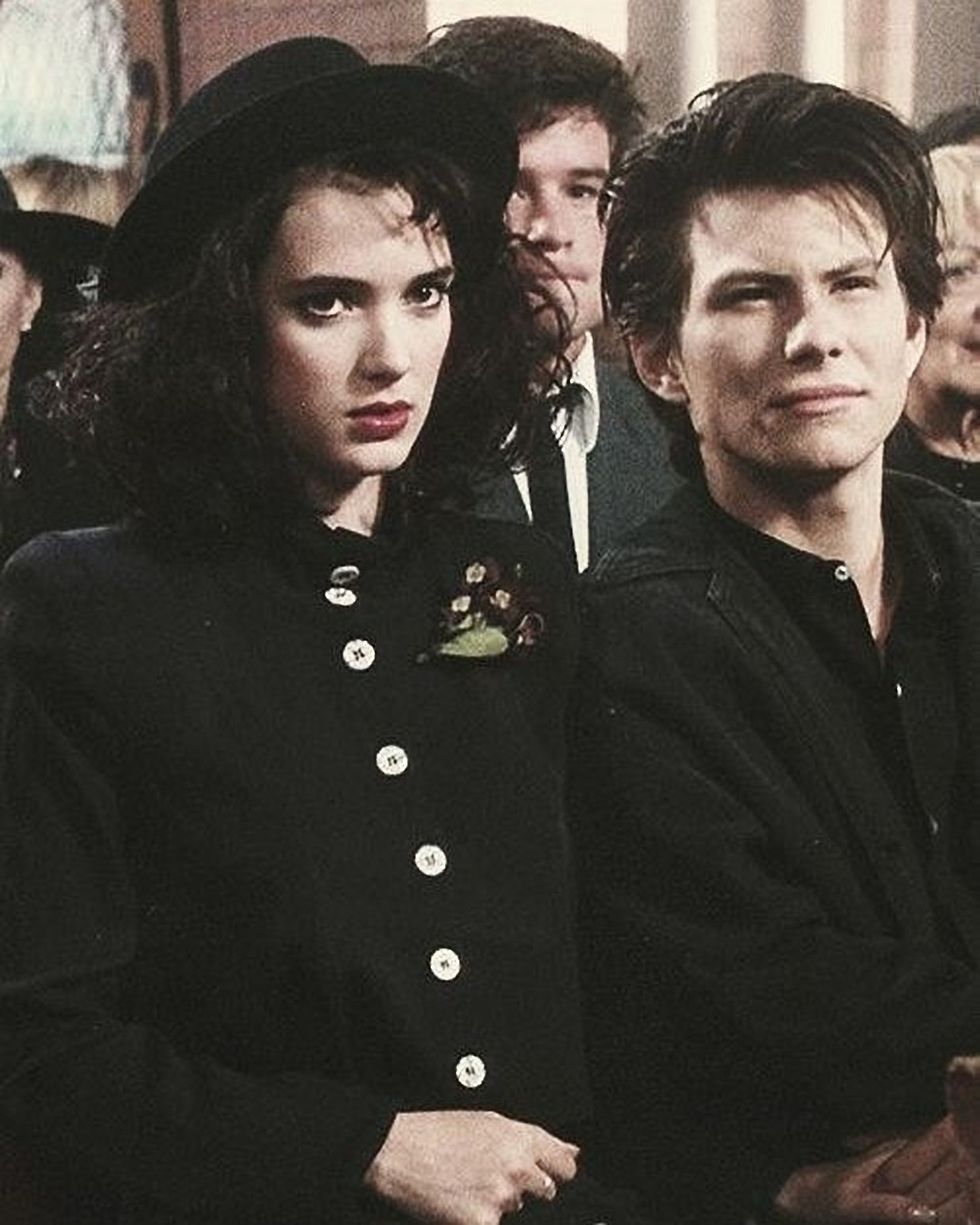If you have not seen the movie Heathers and you are a twenty-something living in America, please catch up to the bandwagon. One of the only reasons you need to watch this movie is simply for the beauty and brilliance of a certain Mr. Christian Slater, who plays the new kid at school, J.D.
Ahhh JD. The original, unconventionally pretty, mysteriously alluring psychopath we millennials know and love. Who would have thought that murder, explosions, and destruction would make a man seem even more attractive, but if any man could do it, it would be Christian Slater. His brooding despair and battered home life certainly explain why he acts the way he does: seeking attention in all the wrong ways, craving sexual stimulation and substituting that desire with destruction when unsatisfied.
Last summer, I watched the series Mr. Robot, which calls out the economical and national destruction that big-scale conglomerates pose in the modern day society. This show also stars Christian Slater as Mr. Robot, a ghostly figment of Elliot Anderson's imagination. Mr. Robot is Elliot's father, who died of cancer caused by carcinogens released by one of the national conglomerates.
When watching this show, I could not help but compare Christian's character in Mr. Robot with his character in Heathers. The similarities are strikingly prominent.
Both JD and Mr. Robot feature characteristics of obsession with destruction, taking down the higher power of society, emotional overreactions and uncontrollable outbursts, and of course their gorgeous physical features of the Mr. Christian Slater.
These immense similar characteristics prompted me to think: Is Mr. Robot a grown up version of JD?
What is JD never really died at the end of Heathers? What if he faked his death, grew up and met a woman, married, settled down, started an electronics company, and had Elliot? His father owning a demolition and construction company would no doubt have instilled a certain amount of technical knowledge or at least interest, which he could have then carried into his adult life.
JD's desire to prove a dramatic point regarding power-struggles and popularity and morality could have also spurned Mr. Robot to create the group F-Society, which functions as an electronically inclined vigilante squad aiming to take down E(vil) Corp, society's leading big business (which also happens to be the conglomerate that killed Mr. Robot).
Mr. Robot's death reflects JD's supposed death with its jab at the errors of the government. The fact that Mr. Robot left his task to his son, Elliot, reflects JD's refusal to stop killing popular kids who have wronged him or the other schoolmates.
Both characters embody a desire for justice executed in a destructive manner.
In both rolls, Christian Slater is the perfect fit. He initiates a sense of moral goodness and justified revenge, but then his true insanity reveals itself the further his actions devolve.
I do not know if Mr. Robot really is a grown up JD, but the conspiracy is curious to entertain.
Regardless of the characteristic connections, Christian Slater deserves more credit and recognition than he receives. He manages to take two characters from two completely separate societies and eras and embodies one within another. Although the similarities are prominent, Christian also does a beautiful job of distinguishing between characters, making similarities almost seem coincidental.
Mr. Slater, I salute you and your cinematic thrillers. You magically and mysteriously prompt a viewer to contemplate the meaning of certain elements of society. Hats off to JD, Mr. Robot, and Mr. Slater. I cannot picture anyone else better fitting for either of these two rolls.















